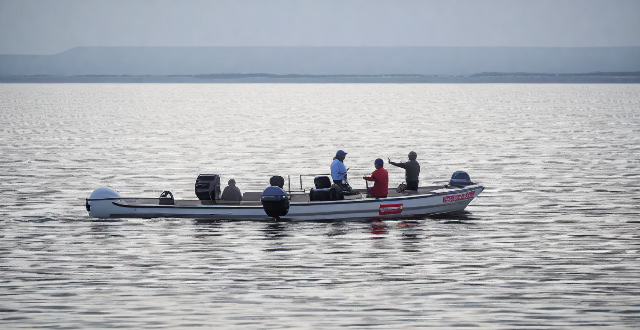Climate change affects the fishing industry through changes in water temperature, ocean acidification, extreme weather events, changes in fisheries management policies, and economic impacts. These factors can lead to overfishing, reduced fish populations, damage to infrastructure and equipment, disruption of natural habitats, and decreased profitability for fishermen. To address these challenges, sustainable management practices and international cooperation are necessary to ensure the long-term viability of the fishing industry.

How Does Climate Change Affect the Fishing Industry?
Climate change is a global phenomenon that has far-reaching effects on various industries, including the fishing industry. The impact of climate change on the fishing industry can be seen in several ways:
1. Changes in Water Temperature
The rise in water temperature due to climate change affects the distribution and migration patterns of fish species. This can lead to overfishing of certain species in specific areas, causing a decrease in their population and making it difficult for them to recover. Additionally, warmer waters can also lead to the expansion of harmful algal blooms, which can further reduce fish populations and affect the quality of catches.
2. Ocean Acidification
As carbon dioxide levels continue to rise, ocean acidification becomes more prevalent. This process reduces the availability of calcium carbonate, which is essential for the formation of shells and skeletons of many marine organisms, including some fish species. As a result, these organisms may struggle to survive, leading to a decline in their populations and affecting the overall health of the ecosystem.
3. Extreme Weather Events
Extreme weather events such as hurricanes, typhoons, and cyclones can have devastating effects on coastal communities and the fishing industry. These events can damage fishing vessels, infrastructure, and equipment, making it difficult for fishermen to continue their livelihoods. Furthermore, extreme weather events can also disrupt the natural habitats of fish species, leading to changes in their behavior and distribution patterns.
4. Changes in Fisheries Management Policies
In response to the impacts of climate change on the fishing industry, governments and international organizations are implementing policies aimed at managing fisheries sustainably. These policies may include setting catch limits, protecting vulnerable species, and promoting sustainable fishing practices. However, these measures can also have negative consequences for local communities and fishermen who rely on fishing as their primary source of income.
5. Economic Impacts
The effects of climate change on the fishing industry can have significant economic implications for both local communities and national economies. Decreases in fish populations can lead to reduced catches, lower profits for fishermen, and job losses within the industry. Additionally, changes in fish distribution patterns may require fishermen to travel longer distances or switch to different types of gear, increasing costs and reducing profitability.
In conclusion, climate change poses significant challenges for the fishing industry worldwide. Addressing these challenges requires a combination of adaptation strategies, sustainable management practices, and international cooperation to ensure the long-term viability of this vital sector.